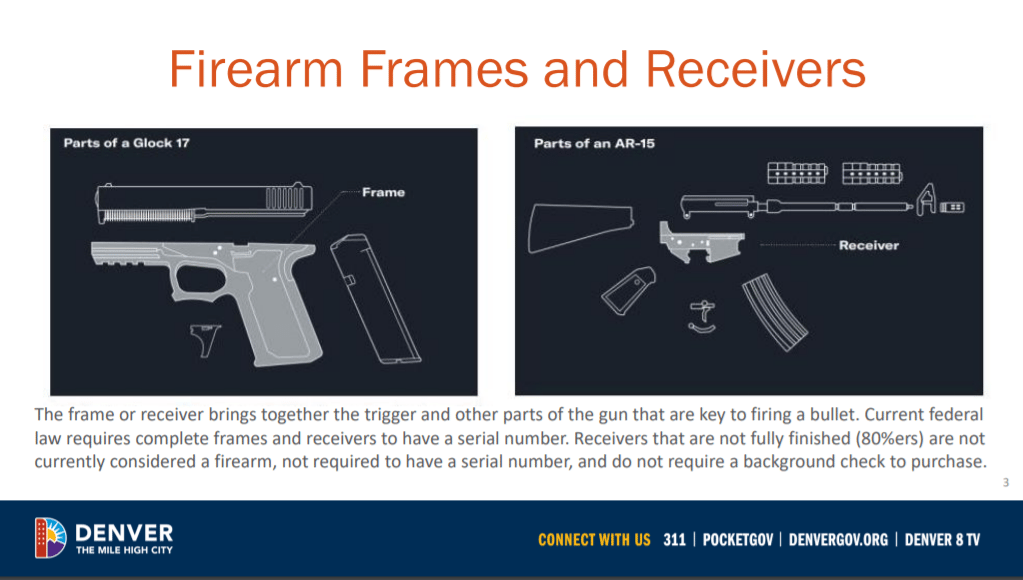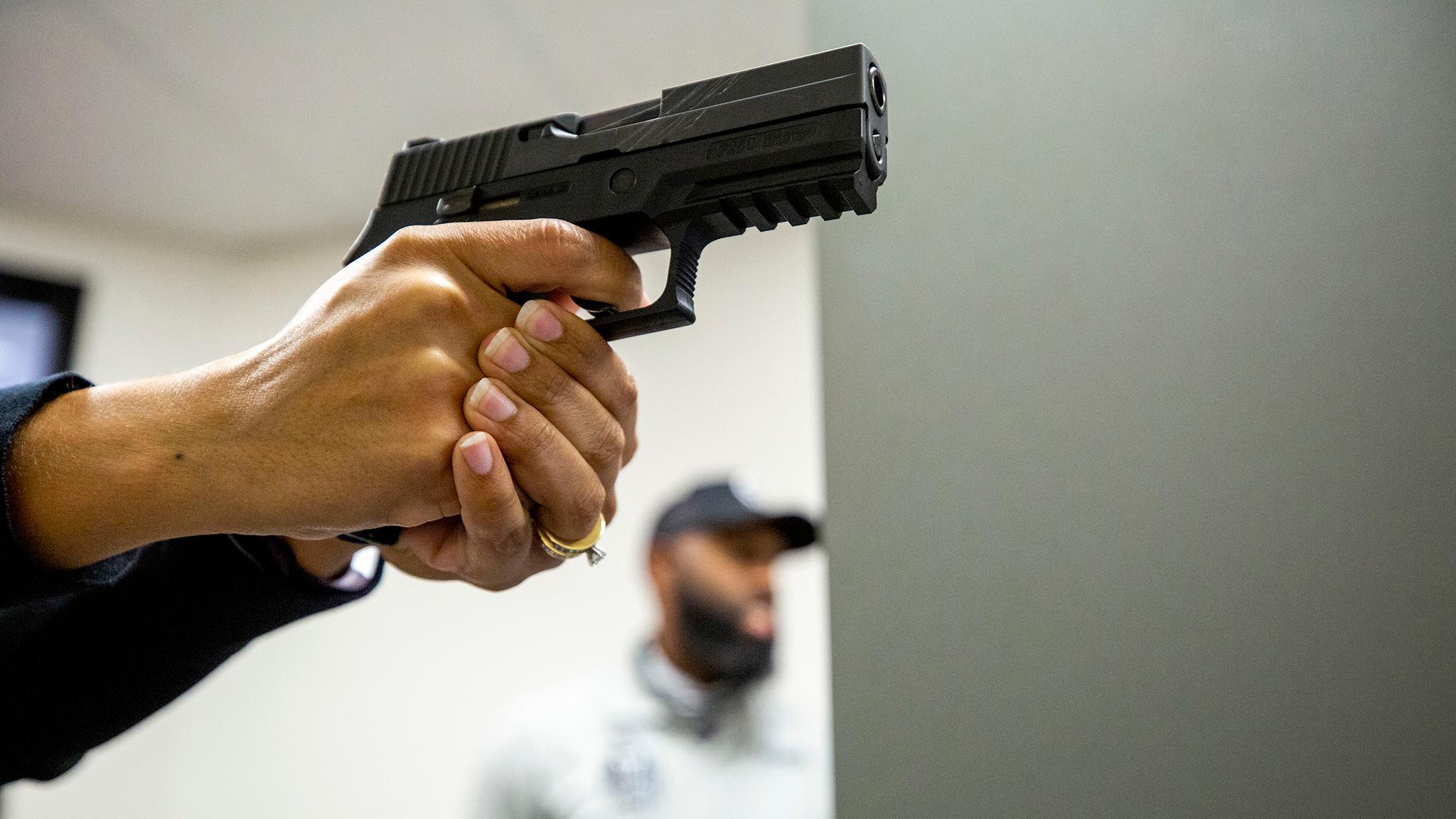Denver is hoping to get ahead of the national "ghost guns" trend by banning them outright through a new bill working its way through city committees. Ghost guns -- firearms assembled using parts or kits of firearm components made at home -- are essentially untraceable and unregulated. The number of them is going up nationwide.
"Across the country, we are seeing an increase in the number of crimes where ghost guns are used," city attorney Kristin Bronson explained during a meeting with city councilors on Wednesday. "We have seen ghost guns used in high school shootings in California, in hundreds of homicides and attempted homicides, and in suicides and attempted suicides as well."
So, what exactly is a ghost gun?
It all comes down to how different parts of a weapon are classified. Nearly all components of a gun can legally be created by a 3D printer and then sold.
"They're not regulated as firearms, despite the fact that they can be used to assemble a firearm quite easily," Bronson said.
The only parts of a gun that always have serial numbers and are regulated are the frame and the receiver. Those are the portions of the weapon that bring together the trigger with the barrel to make firing a bullet possible. Under federal law, these pieces are considered a firearm in and of themselves. Therefore, they have a serial number and owners may have to undergo a background check before purchase.
Here's the loophole: if a person buys an incomplete frame or receiver (colloquially called 80%ers because they are generally only 80% complete), they can build a complete firearm while bypassing all other regulations.

Ghost guns also make solving crimes much more difficult, because serial numbers contain a slew of valuable information.
"We can figure out the maker of the weapon. We can figure out the distributor. We can find out the purchaser," assistant city attorney Reginald Nubine said during the meeting. "We lose all that information when we find one of these ghost guns."
About 2% of the guns confiscated in the city of Denver since 2019 have been classified as ghost guns, although the Bureau of Alcohol, Tobacco, Firearms and Explosives says this number is likely an undercount because law enforcement agencies sometimes trace ghost guns incorrectly -- or don't keep track of them at all.
So what would this legislation do?
This bill makes it unlawful to possess, carry, transport, discharge, manufacture, or sell non-serialized firearms. Unfinished frames and receivers will be classified as full firearms. Additionally, "affirmative defenses" that permit otherwise illegal uses of guns (say, a minor using a gun in a shooting range, or transporting a gun to take it in for repairs) don't apply to ghost guns, since they are banned outright.
Consequences include immediate forfeiture of the weapon, a fine of up to $999 and up to 300 days in jail.
The overall strategy is also to disrupt the manufacturing market through local laws.
"Our ultimate goal is to have them sell the [gun manufacturing] kits with a serial number," Nubine said. "The more jurisdictions that have these laws on the books will cause a change in the market for these weapons."













